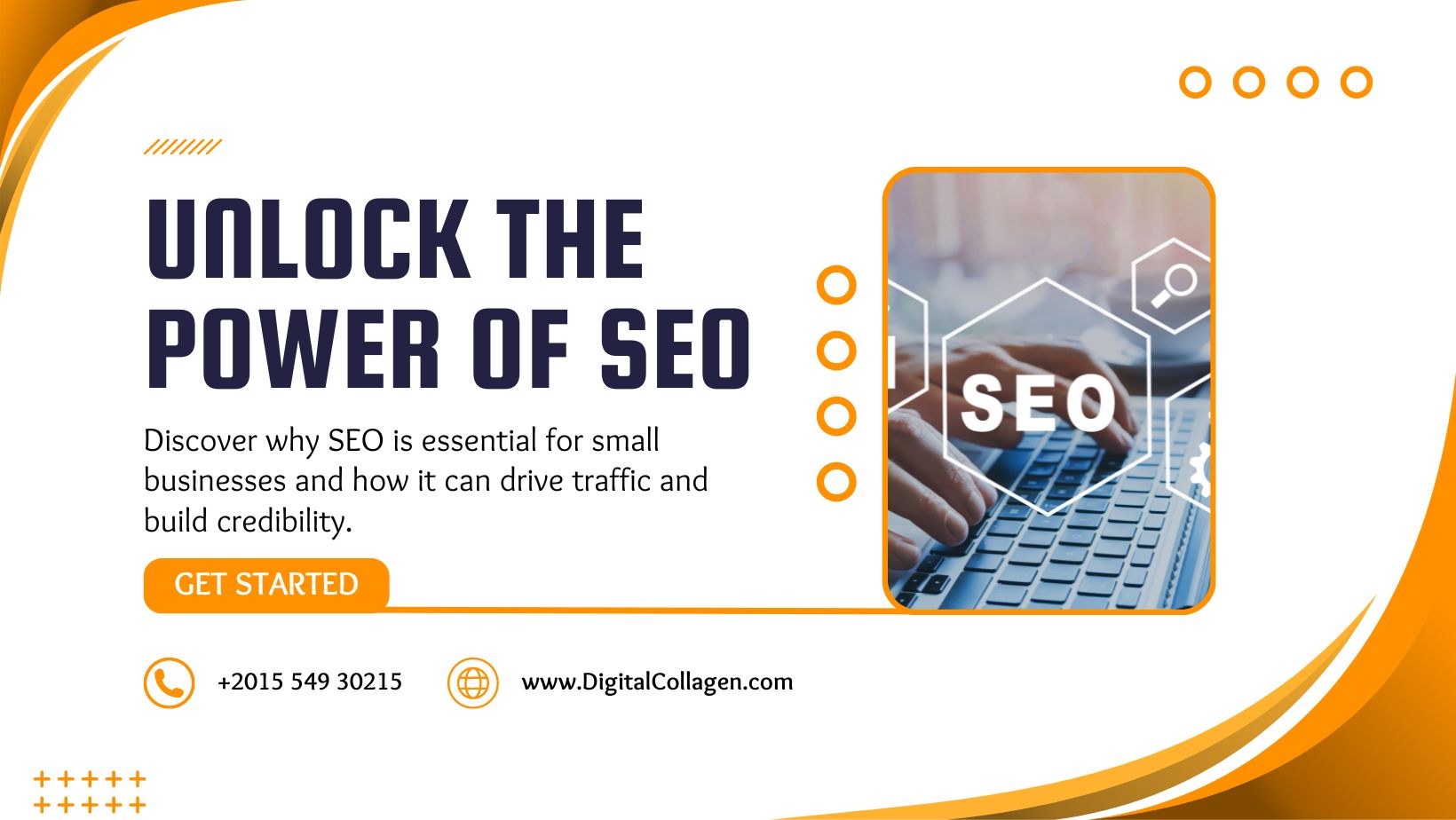In today’s digital age, having a strong online presence is essential for any business, especially small businesses looking to compete in crowded markets. One of the most effective ways to build and enhance this presence is through Search Engine Optimization (SEO). If you’ve ever wondered how businesses appear on the first page of Google when you search for something, the answer is likely SEO. But why is it so important, and how can it benefit small businesses? This guide will explain the basics and why SEO should be a key part of your growth strategy.
What is SEO?
SEO is the process of optimizing your website to improve its visibility on search engines like Google, Bing, or Yahoo. When someone searches for products or services related to your business, you want your website to appear as high as possible in the search results. This is because most users tend to click on the first few results, with the majority rarely moving beyond the first page.
There are various components to SEO, including keyword optimization, improving site speed, mobile friendliness, backlink building, and creating high-quality content. Each of these factors helps search engines understand your site better and determines its relevance and rank.
Why is SEO Important for Small Businesses?
- Increased Visibility and Traffic
One of the biggest advantages of SEO is increasing your website’s visibility in search engine results. When potential customers search for products or services that match what you offer, you want to be one of the first results they see. Ranking higher means more traffic to your website, and more traffic can lead to more sales or inquiries. - Cost-Effective Marketing
Compared to other forms of online marketing like paid ads or social media promotions, SEO offers a high return on investment. Once your website is optimized, the organic traffic it attracts doesn’t come with a direct cost per click. While it requires an upfront investment in time and resources, SEO continues to bring in traffic long after your efforts are in place, making it a cost-effective strategy for long-term growth. - Builds Trust and Credibility
Websites that rank highly on search engines are often seen as more credible and trustworthy. People tend to trust search engines like Google to recommend reliable sources. By appearing at the top of the search results, your small business benefits from that credibility, helping to build trust with potential customers. Additionally, optimizing your website for SEO often involves improving user experience, which further enhances customer trust. - Helps Compete with Larger Businesses
One of the main advantages of SEO is that it levels the playing field. Even as a small business, you can outrank larger competitors if your website is better optimized. By targeting specific keywords that are relevant to your local area or niche market, you can attract highly targeted traffic that is more likely to convert. - Improves User Experience
SEO isn’t just about search engines; it’s also about creating a better experience for your visitors. A website that is well-organized, fast-loading, and mobile-friendly will not only rank better but will also keep users engaged. Google and other search engines prioritize sites that offer a good user experience, so by focusing on SEO, you’re also ensuring that your website is easy to navigate and accessible.
SEO Basics for Small Businesses
If you’re just getting started with SEO, here are a few key areas to focus on:
- Keyword Research: Identify the terms and phrases your potential customers are using to search for your products or services. Tools like Google Keyword Planner can help you find the right keywords.
- On-Page Optimization: Use these keywords strategically in your website’s content, including in titles, headings, meta descriptions, and body text. But avoid keyword stuffing—content should be natural and user-friendly.
- Content Creation: High-quality, relevant content is crucial for SEO. Blog posts, product descriptions, and informative pages that answer user questions can help improve your rankings.
- Technical SEO: Ensure your website is fast, mobile-friendly, and free from errors. Tools like Google’s PageSpeed Insights can help you improve site performance.
- Backlinks: These are links from other reputable websites to your own. They help build authority and improve your site’s credibility in the eyes of search engines.
Conclusion
For small businesses, SEO can be a game-changer. It offers a cost-effective way to increase visibility, attract more customers, and compete with bigger players in your industry. By optimizing your website for search engines, you’re setting your business up for long-term success. Whether you’re just getting started or looking to improve your current strategy, investing in SEO is crucial for any small business looking to grow in the digital world.


Add a Comment